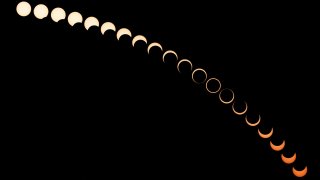
What to Know
- Monday, Dec. 14 at 7:30 a.m. PST
- A NASA eclipse livestream will follow the talk
- Register now for the Zoom webinar
Searching for under-the-sun, out-in-the-fresh-air pursuits these days?
Plenty of people are doing just that, as they get out and safely stretch a leg during this new stay-at-home period.
But one outdoor event, and it is indeed a very, very outdoor event, won't be taking place in, or rather, above Southern California.
It will, however, deliver astronomical thrills to part of the Southern Hemisphere on Monday, Dec. 14.
It's time for a total solar eclipse, and if you happen to be in Chile or Argentina, you'll be able to experience the rare occurrence's magnificent umbra.
So, yes: We'll be fully umbra-free here in the Golden State, but eclipse aficionados can still be part of the thrilling action.
How? By registering for a livestream, one that will be led by Dr. John Mulchaey, Director of the Carnegie Observatories.
If you know the Pasadena-based nexus of astronomical wonders, you know that the look-up location's event schedule is always a busy one.
Scintillating seminars, nifty tours, and more happenings regularly give Southern Californians deeper looks at our universe.
Such events have gone virtual for most of 2020, and the total solar eclipse webinar, which begins fairly bright and somewhat early on Dec. 14, will also be an online treat.
Dr. Mulchaey will dig deeper into the story behind solar eclipses, giving people watching from home a fuller understanding of what happens when the moon briefly but dramatically comes between our terrestrial home and our nearest star.
Be sure to linger after the talk for the NASA livestream of the eclipse.
Your reward for lingering? You'll see the sky show with fresh eyes and a newly acquired slate of solar-science facts, the informative tidbits astronomy fans treasure.
Carnegie Observatories remains a font of such facts, even while closed to the public. Register now and start your week with a joyful jolt of cosmic cool, as you learn about, and get to safely see, the next total solar eclipse.
Pictured: Multiple Exposure of the various phases during the annular Solar Eclipse on 15th January 2010



